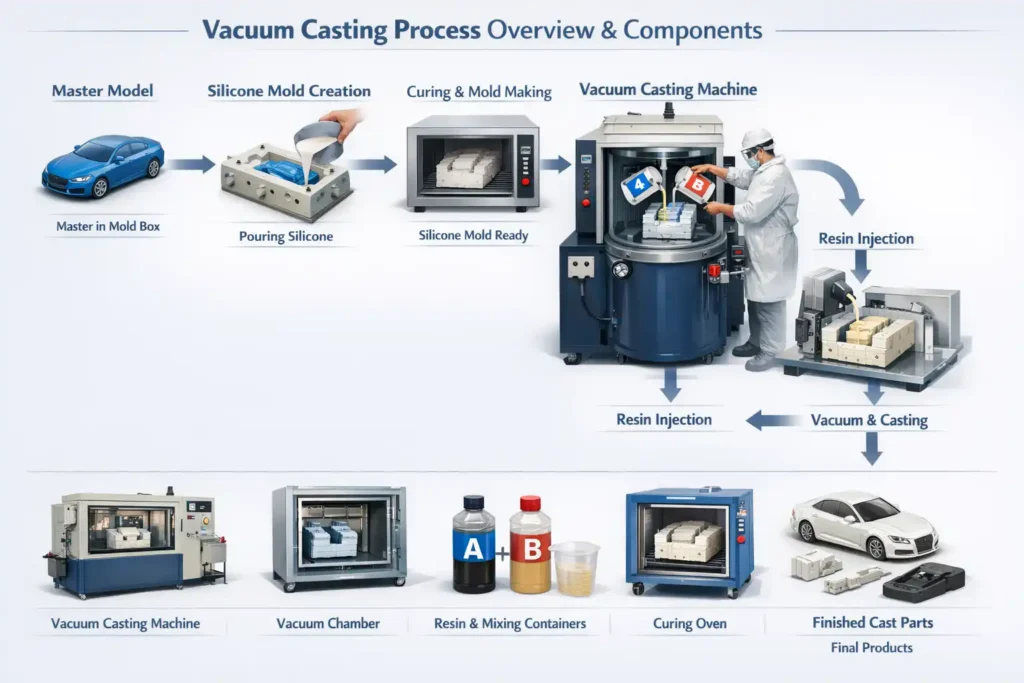Running an outpatient healthcare practice today isn’t just about delivering excellent care, it’s about managing huge administrative burdens (52% of physicians say they spend 6–21+ hours per week on utilization-management paperwork).
If your front desk is swamped, cash flow is slower than it should be, or patient experience isn’t great, your practice management system might be the missing link.
Why Does Your Outpatient Practice Need a Practice Management System?
Your staff drowning in phone calls, claims denials piling up, and patients frustrated with endless paperwork.
These are just some of the pain points outpatient providers face daily.
An efficient practice management system is the engine that drives smoother front desk operations, faster billing cycles, and yes, happier patients.
This system serves as the backbone, knitting together scheduling, billing, patient registration, and reporting into one seamless experience.
Challenges Faced by Outpatient Providers in Practice Management
| Pain Point | Why It’s a Problem for Practices |
| Manual Overload | Physicians spend ~8.7 hours/week (16% of their time) on administrative tasks, with over 63% of hematologists reporting that admin duties consume at least half their workday. |
| Revenue Pressures | 20% Medical claims require rework or appeal, costing ~$25 each, and unresolved denials can eat 1–5% of net patient revenue. In 2025, 40% of billers reported rising claim denials. |
| Staff Shortages & Burnout | Burnout and turnover are critical: resignations rose 50% from 2020–2024, and over 25% of physicians considered leaving practice due to stress. Labor costs climbed by $42.5 billion. |
| Security Risk | The average cost of a breach reached $9.77 million in 2024, and 40% of providers face challenges integrating new systems securely. |
What Challenges Do Outpatient Healthcare Practices Face Today?
Outpatient healthcare providers often struggle with:
- Overbooked or underutilized schedules
- Manual, error-prone insurance verification that leads to claim denials
- Administrative burden from repetitive data entry and document handling
- Disjointed communication between front desk, back office, and providers
- Lack of real-time insight into practice performance and revenue cycle metrics
The right practice management system features can tackle these issues head-on, unlock operational efficiency, and enhance patient engagement.
FAQ:
What is a Medical Practice Management System? (For Outpatient Providers)
A Medical Practice Management System (PMS) is a comprehensive software solution designed to automate manual administrative task, manage front & back-office workflow, and revenue cycle management.
It handles patient scheduling, demographic and record management, insurance verification, claims processing, and billing, all in one unified platform.
It automates repetitive tasks and reducing paperwork, a PMS minimizes administrative burden, accelerates revenue cycles, improves accuracy, and enhances staff productivity.
Most importantly, it frees healthcare providers to focus on delivering high-quality patient care, while providing actionable insights that support smarter business decisions and better patient experiences.
What an Effective Practice Management System Needs to Do for Your Outpatient Clinic
9 Features Your Practice Should Look For
- Advanced scheduling with smart rules and automated reminders.
- Digital registration, e-consents, and automated intake workflows.
- Real-time insurance eligibility and scheduled re-verification.
- Front + back office coordination with tasks, alerts, and messaging.
- Integrated billing, merchant services, and denial management tools.
- Real-time dashboards for financial and operational insights.
- Built-in patient engagement and multi-channel communication.
- Cloud-based scalability with customization for specialties.
- Strong security, HIPAA compliance, and audit-ready logging.
Here’s a comprehensive list of features to look out for in the practice management system and why it matters:
1. Advanced Scheduling & Intelligent Appointment Management
No more guessing games with your calendar.
Look for a system featuring online booking, an ASAP list for urgent requests, provider syncs across locations, recurring appointments, and intelligent slot rules.
This means fewer no-shows and optimized provider time. Practices using advanced scheduling enjoy smoother patient flow and better utilization of resources.
FAQ:
How does advanced scheduling reduce no-shows?
CERTIFY Health, an automated scheduling and waitlist management technology, guarantees that your staff and patients won’t have to waste time playing phone tag to make new appointments or cover calendar gaps due to cancellations.
By keeping your patients informed and involved, automated SMS and email reminders dramatically lower the number of missed visits.
2. Frictionless Patient Registration & Fully Digital Intake
The front desk is often overwhelmed with manual paperwork and insurance questions.
Digitized registration capturing demographics, electronic consents, real-time insurance verification, secure document uploads, and pre-visit workflows lighten the load.
Result? Quicker check-ins, more accurate information, and happier staff.
3. Instant Eligibility Checks & Coverage Verification
Insurance mix-ups can grind your revenue cycle to a halt.
A dynamic practice management system performs automated, real-time insurance eligibility checks at the front desk, no more lengthy phone calls and guesswork.
Scheduled re-verification ensures data stays fresh, reducing claim denials and fast-tracking revenue.
4. Unified Front + Back Office Workflows
Smooth internal communication and clear workflows make any practice run like a well-oiled machine.
The best systems offer task assignments, alerts, secure messaging, customizable user permissions, and audit logs to support compliance and accountability.
5. End-to-End Billing & Revenue Cycle Automation
Billing headaches are all too common.
Choose a system with flexible co-pay collections. Think Text-to-Pay and AutoPay features, alongside merchant services, seamless claims tracking, superbills, and strong denial management.
The goal? Increase cash flow and lessen administrative work.
6. Insightful Reporting & Operational Dashboards
Data isn’t just numbers, it’s your roadmap to better decisions.
Real-time dashboards should give clear views of productivity, claims, no-shows, and finances.
This insight powers proactive management of resources and strategy adjustments that keep your practice competitive.
7. Connected Patient Engagement & Communication
Patients now expect seamless communication from scheduling to reminders to secure messaging.
One disconnected tool equals frustration for both staff and patients. Your system should integrate patient portals, automated appointment reminders, and messaging features that keep patients connected and loyal.
8. Scalable, Customizable, Cloud-Ready Platform
Your practice won’t stay the same size forever.
Demand a system that scales with you, adapts to your specialty, and offers cloud-based access for security and cost-efficiency.
Cloud platforms support multi-location outpatient practices with consistent updates and data synchronization.
9. Enterprise Grade Security & Compliance Assurance
Your software must be HIPAA-compliant, encrypt sensitive data, and keep audit-ready logs. This ensures regulatory compliance and builds patient trust.
FAQ:
What Makes a Practice Management System for Outpatient Clinics Effective?
An effective practice management system not only simplifies tasks by digitizing it, but it improves operational efficiency, boosts staff productivity, and drives measurable revenue impact.
Also, effective PMS are one that comes with qualities like - easy to adopt, scalable across locations, built for automation, and capable of maximizing ROI using smarter workflows, reducing administrative overhead.
That’s where CERTIFY Health stands apart.
It is not your ordinary PMS or legacy system, CERTIFY Health delivers a unified, future-ready platform designed to streamline every administrative and financial touchpoint.
The system empowers practices to scale confidently, integrate seamlessly, and achieve 35-40% higher ROI through automation, accuracy, and real-time visibility.
Core features of CERTIFY Health’s PMS include:
- Multi-location scheduling & mart appointment management
- Automated eligibility checks
- Secure registration to digital intake
- Front-to-back-office task orchestration
- Built-in RCM & Billing tools
All of these aims to eliminates bottlenecks that drain revenue and staff time.
The platform also connects your front desk, back office, and providers with real-time insights and unified data, accelerating decision-making and reducing errors, something legacy PMS systems simply cannot offer.
The result: faster adoption, fewer manual tasks, higher staff efficiency, improved patient experience, and a measurable lift in revenue performance, all powered by one unified system engineered for outpatient growth.
How Do You Choose the Right Practice Management Software for Your Outpatient Practice?
Tips for Picking the Perfect Practice Management System for Outpatient Providers:
- Assess your clinic’s needs: Identify challenges like administrative burden, high no-show rates, or patient data management, and define priorities based on clinic size and workflow.
- Focus on the key features: Look for scheduling and reminders, integrated billing and claims management, secure patient portals, HIPAA-compliant data protection, and EHR integration.
- Evaluate practical aspects: Consider ease of use, responsive customer support, mobile access, pricing, and potential ROI.
- Test before committing: Use demos, trial periods, and read user reviews to ensure the software fits your real-world workflow.
- Goal: Choose a PMS that streamlines operations, improves patient experience, and allows your team to focus on care instead of paperwork.
Conclusion
A modern practice management system empowers outpatient clinics to operate with confidence, efficiency, and precision.
It turns common hurdles into opportunities for development, improved care, and seamless operations through integrated workflows, enhancing patient engagement and staff productivity. PMS frees up your team to concentrate on what really counts: providing outstanding patient experiences.






